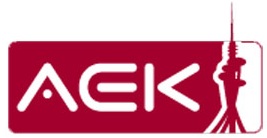Fabulous 2015 Keynote Speakers:
-
Prof. Petri Mahonen, RWTH, Aachen, Germany
-
Prof. Luiz da Silva, Trinity College, Ireland (Track 1: Future access networks)
-
Prof. Alberto-Leon Garcia, University of Toronto (Track 3: Emerging networking aspects )
-
Dr. Toktam Mahmoodi, KCL, UK (Track 4: Practical use-cases)
-
Prof. Veljko M. Milutinovic, University of Belgrade, Serbia
 Professor Petri Mähönen, (RWTH Aachen)
Professor Petri Mähönen, (RWTH Aachen)
Title: 5G and next generation communications: more of everything or have we lost the vision?
Abstract: In this talk we have a look at the “generation games” in mobile networking. The content of innovation and potential for breakthroughs in 5G networking is becoming an increasingly interesting question as the announcements on different 5G initiatives, projects, and trials are becoming ubiquitous. In this talk we pay attention to state premises for problems and needs that are pervasive in wireless networks, and how those are traditionally addressed. From these premises we go further to see how the emerging 5G R&D is answering this questions. Generally we are interested in to understand if the future of wireless systems is to deliver more of everything or have we perhaps lost the vision? We ask also what role academia, if any, can play to enable emergence of the future wireless large-scale systems.
Bio: Petri Mähönen is currently a full professor and head of the Institute for Networked Systems at the RWTH Aachen University. He joined RWTH Aachen in 2002 as the holder of Ericsson endowed chair of wireless networks. He has studied and worked in the United States, the United Kingdom and Scandinavia. Apart of academic publishing, he has been a part of teams who have patented and successfully technology transferred technology for industrial use. In 2006 he was awarded Telenor research prize. He is also participating as a principal investigator and research area coordinator in the Ultra High Speed Mobile Information and Communications (UMIC) research centre at RWTH Aachen, one of the German research excellence clusters, which are funded by German Federal and State Governments. His research interests and background include work on wireless Internet, software defined radios, embedded networking and IoT protocols, cognitive radio networking, spectral efficiency, spatial statistics, and large-scale mm-wave systems.
 Professor Luiz A. DaSilva, (Trinity College Dublin)
Professor Luiz A. DaSilva, (Trinity College Dublin)
Service-Driven Networks: Resource Sharing and the Future of the Wireless Access
Abstract: Wireless networks of the future will be characterised by heterogeneity of spectrum usage regimes, of resource ownership models, and of radio access technologies. In these networks, resources will be orchestrated to create bespoke virtual networks designed to best meet the needs of specific services. Sharing is a major enabler of such service-driven networks; it can come in the guise of joint ventures that hold the ownership of mobile network infrastructure, or bilateral agreements between operators, or, in the near future, more dynamic and flexible sharing mechanisms. This goes beyond opportunistic access to spectrum, and will also encopass the sharing of infrastructure, sensors, backhaul, processing, storage, etc. Ultimately, we envision the dynamic establishment of virtual networks from a pool of wireless resources from large and small operators, as well as crowdsourced from end users. These virtual wireless networks will be service-aware and built on a programmable network substrate, in response to a specific service need. This talk will outline our broad vision and discuss some results of our current studies of inter-operator infrastructure and spectrum sharing and its impact on network provisioning by operators and over-the-top service providers.
Bio: Luiz A. DaSilva holds the chair of Telecommunications at Trinity College Dublin. He is also a Research Professor in the Bradley Department of Electrical and Computer Engineering at Virginia Tech, USA. His research focuses on distributed and adaptive resource management in wireless networks, and in particular cognitive radio networks, dynamic spectrum access, and the application of game theory to wireless networks. Prof. DaSilva is currently a principal investigator on research projects funded by the National Science Foundation in the United States, the Science Foundation Ireland (SFI), and the European Commission under Framework Programme 7 and Horizon 2020. He is a co-principal investigator of CONNECT, the Telecommunications Research Centre in Ireland and holds a Principal Investigator grant from SFI. He has co-authored two books on wireless communications and is currently an IEEE Communications Society Distinguished Lecturer.
Professor Alberto Leon-Garcia, (University of Toronto)
Data Management and Analytics for Smart Transportation
Abstract: In this talk we present results from a project to create an open and flexible applications platform for Connected Vehicles and Smart Transportation (CVST) systems that can leverage emerging and future onboard sensor, wireless communications, and cloud computing technologies. A core part of this platform collects data about traffic and road conditions from road sensor systems as well as connected vehicles, including mobile devices, cars, buses, trucks, and travellers. The intent is to provide richer and higher quality data that can be used by the private sectorto offer novel Internet applications, and by publicly operated smart transportation systems that regulate traffic in streets, roads, and highways.
We also discuss our efforts to build an analytics engine for analyzing the real-time sensor data to provide better predictions of travel time, and data mining methods to identify temporal and spatial patterns that can be used to predict the onset of congestion. These methods will provide improved decision support for travellers, public transit, freight logistics, and fleet management.In the future these applications will also include new vehicle-based payment, reward and metering systems that are applicable in usage-based settings such as parking, insurance, car rentals, peak-hour driving, lane occupancy and speed control and road taxes.
We will present a demo of the CVST data portal that is currently online.
Bio: Professor Alberto Leon-Garcia is Distinguished Professor in Electrical and Computer Engineering at the University of Toronto. He is a Fellow of the Institute of Electronics an Electrical Engineering "For contributions to multiplexing and switching of integrated services traffic". He is also a Fellow of the Engineering Institute of Canada and the American Association for the Advancement of Science. He has received the 2006 Thomas Eadie Medal from the Royal Society of Canada and the 2010 IEEE Canada A. G. L. McNaughton Gold Medal for his contributions to the area of communications. Professor Leon-Garcia is author of the textbooks: Probability and Random Processes for Electrical Engineering, and Communication Networks: Fundamental Concepts and Key Architecture. He is currently Scientific Director of the NSERC Strategic Network for Smart Applications on Virtual Infrastructures. He was founder and CTO of AcceLight Networks in Ottawa, Canada.
Dr. Toktam Mahmoodi, (King's College London)
Functionality as a Service in Mobile Networks, a Gateway to Vertical industries
Abstract: With the shift towards decoupling of data and control plane and the softwarization in mobile networks, delivery of mobile network control functionalities can be foreseen as over the top services. We envisage such move within the paradigm of Functionality as a Service (FaaS); a platform that can also deliver requirements of the 5th generation mobile, i.e. 5G. In this talk, I expose the FaaS platform as a gateway to vertical industries being part of 5G mobile networks and discuss automotive and healthcare industries as the two prominent domains in the future intelligent infrastructure.
Bio: Dr Toktam Mahmoodi is a Lecturer in Telecommunications in the Department of Informatics, King’s College London. Toktam is a member of the Tactile Internet Lab and principal and co-investigator in 5G mobile research projects at King’s. Previously, Toktam was visiting research scientist with F5 Networks, in San Jose, CA, post-doctoral research associate in the INS research group in the Department of Electrical and Electronic Engineering, Imperial College London, and Mobile VCE researcher. Her research focuses on the areas of mobile and cloud networking, and includes network virtualisation, mobility management, routing, network modelling and optimisation. Toktam also works on applications of mobile communications in the healthcare, smart cities and automotive sector.
Professor Veljko M. Milutinovic, (University od Belgrade)
DataFlow SuperComputing for BigData Analytics
Abstract: This presentation analyses the essence of DataFlow SuperComputing, defines its advantages and sheds light on the related programming model. DataFlow computers, compared to ControlFlow computers, offer speedups of 20 to 200 (even 2000 for some applications), power reductions of about 20, and size reductions of also about 20. However, the programming paradigm is different, and has to be mastered. The talk explains the paradigm, using Maxeler as an example, and sheds light on the ongoing research in the field. Examples include DataEngineering, DataMining, FinancialAnalytics, etc. A recent study from Tsinghua University in China reveals that, for Shallow Water Weather Forecast, which is a BigData problem, on the 1U level, the Maxeler DataFlow machine is 14 times faster than the Tianhe machine, which is rated #1 on the Top 500 list (based on Linpack, which is a smalldata benchmark). Given enough time, the talk also gives a tutorial about the programiing in space, which is the programming paradigm used for the Maxeler dataflow machines (established in 2014 by Stanford, Imperial, Tsinghua, and the University of Tokyo). Examples (appgallery.maxeler.com and webIDE.maxeler.com).
Bio: Prof. Veljko Milutinovic received his PhD from the University of Belgrade (rated #366 world-wide at the U.S. News Report 2015), spent about a decade on various faculty positions in the USA (mostly at Purdue University), and was a codesigner of the DARPAs first GaAs RISC microprocessor. Now he teaches and conducts research at the University of Belgrade, in EE and MATH (Belgrade math is rated #87 world-wide at the U.S. News Report 2015). His research is mostly in datamining algorithms and dataflow computing, with the stress on mappings of algorithms onto architectures. His co-authored paper on matrix multiplication for dataflow received "The IET Premium Award for 2014" (meaning the best paper in IET Computing for 2012 and 2013). His paper on the research methodology was published in an ASCE journal and received a special recognition for the most downloaded paper of the publisher. He published over 20 books with the USA publishers. For 7 of his books, forewords were written by 7 different Nobel Laureates with whom he cooperated on his past industry sponsored projects. He has over 60 IEEE or ACM journal papers, and about 3000 Google Scholar citations.











.jpg)



































